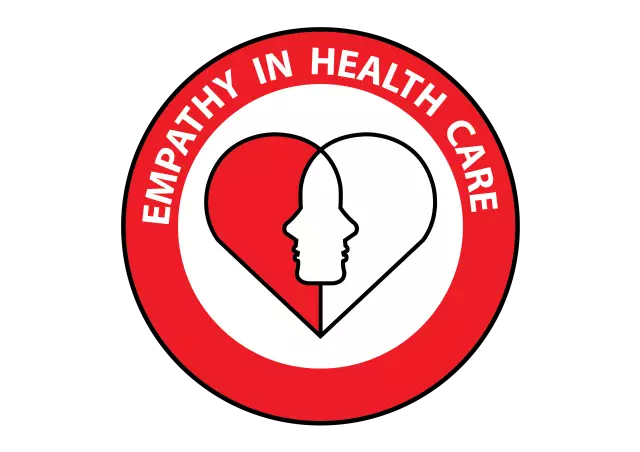- Author Rachel Wainwright wainwright@abchealthonline.com.
- Public 2023-12-15 07:39.
- Last modified 2025-11-02 20:14.
6 signs of empathy
Empathy is the ability to experience other people's emotions no less vividly than your own. Despite the fact that in psychology the presence of such an ability is considered the norm, some people (empaths) are gifted with it to a greater extent. According to scientists, about 20% of the world's population can be attributed to this category.
The intensity of empathy varies among empaths. It can be expressed both in the usual ability to delve into the state of the interlocutor, and in complete immersion in other people's emotions. Some empaths are so sensitive that negative experiences from other people make them physically unwell.
Today we will talk about those signs with which you can determine your ability to empathy.

Source: depositphotos.com
Sensitivity to incongruent behavior
When communicating with each other, people use more than words. The meaning of our speech is emphasized and confirmed by the tonality of the voice, loudness, articulation, facial expressions, gestures and postures (the so-called body language). If the person is insincere, these signals do not correlate well with each other. This behavior is called incongruent.
Due to the peculiarities of perception, the empath extremely accurately, albeit unconsciously, reads such inconsistencies and senses any falsehood. In the company of an incongruent person, he experiences distinct discomfort. For people with strong empathy, dealing with liars, braggart, jealous, or hypocrites can trigger heart palpitations, shortness of breath, headaches, and anxiety.
Avoiding negative society
Communicating with someone experiencing negative emotions is never easy. This can be especially difficult for an empath because he empathizes too much with someone else's grief, fear, or heartache. In addition, most empaths are talented listeners and have little ability to deny communication to people who are eager to share their experiences. That is why a high capacity for empathy can manifest itself in some detachment from negative interlocutors. This is how the empath tries to defend against the inevitable stress.
Intolerance to aggression
Empaths do not tolerate any conflict situations. They are deprived of peace of mind not only by direct aggression of others, but also by too noisy behavior, especially if it is dictated by such emotions as indignation, anger or anger.
A person with the ability to empathize is usually calm, friendly, and considerate. He always tries to resolve contradictions peacefully and does not accept violence.
Emotional perception of other people's troubles
An empath takes other people's troubles to heart. He reacts equally sharply to the pain of a familiar person, the misfortune seen in television coverage, and the misfortunes of the characters in a feature film. Of course, he understands that these are different things, but all situations of this kind cause him a strong surge of negative emotions.
Discomfort with an excess of emotions
A person with a strong capacity for empathy can hardly bear any emotional excesses. He is traumatized not only by someone else's grief, but also by an excess of positive. For example, an empath may feel uncomfortable attending a noisy party, as loud noise, bright lights, and an abundance of people having fun quickly tire him out.
Painful perception of criticism
Empaths are usually cautious and reserved in their interactions with others and in expressing their own feelings. They are afraid of hurting someone, creating a conflict or simply incomprehensible situation for others. In response to their own delicacy, they expect similar behavior from other people. Therefore, a tendency to empathy is often combined with an excessive sensitivity to criticism: the empath is offended by any negative assessment, even if it is expressed mildly.
Empathy can be measured. Psychologists do this using questionnaires, the most famous of which (Empathy Level) was developed by Sally Whewright and Simon Baron-Cohen in 2004.
It may seem that a high level of empathy is "uncomfortable" and can make life difficult for a person. Fortunately, this is not the case. Most empaths over time become accustomed to a particular perception of the world and develop a style of behavior that helps them to maintain physical and mental health. Of course, it is not very pleasant to constantly feel someone else's pain as your own, but this is redeemed by the ability to understand other people, the ability to listen to them and provide the necessary help. A person with this talent is usually held in high esteem. The people around him love and appreciate, although they do not always know how to protect him from unnecessary stress.
Empathy is very important for people who work as doctors, psychologists, teachers, and social workers. It is this quality that creates the basis for emotional uplift, without which no creative activity is possible. A successful ad creator, insurance agent, or sales manager must be an empath. We can say that in a world based on close interaction between people, the ability to empathy has a positive effect on a person's social realization.
YouTube video related to the article:

Maria Kulkes Medical journalist About the author
Education: First Moscow State Medical University named after I. M. Sechenov, specialty "General Medicine".
Found a mistake in the text? Select it and press Ctrl + Enter.






